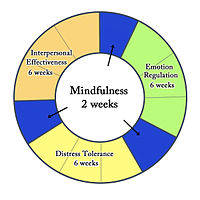
Photo from wikipedia
OBJECTIVE To examine the predictive value of cognitive coping strategies at pretreatment and the value of changes in these strategies during cognitive-behavioral treatment for aviophobia for long-term therapy results. METHOD… Click to show full abstract
OBJECTIVE To examine the predictive value of cognitive coping strategies at pretreatment and the value of changes in these strategies during cognitive-behavioral treatment for aviophobia for long-term therapy results. METHOD Data from baseline, after therapy at 2 months, short-term follow-up at 5 months, and long-term follow-up at 41 months were analyzed (N = 59). RESULTS Participants were in a long-term process of change, which continued positively after therapy for maladaptive cognitive coping strategies. The use of cognitive coping strategies at baseline was not predictive of long-term outcome. However, a greater increase in the use of adaptive coping strategies, and more importantly, a greater decrease in the use of maladaptive coping strategies were predictive of improvements indicated in self-report of flight anxiety and actual flight behavior at long-term follow-up. CONCLUSION Improvement of maladaptive cognitive coping strategies is possibly a key mechanism of change in cognitive-behavioral therapy for aviophobia.
Journal Title: Journal of clinical psychology
Year Published: 2017
Link to full text (if available)
Share on Social Media: Sign Up to like & get
recommendations!